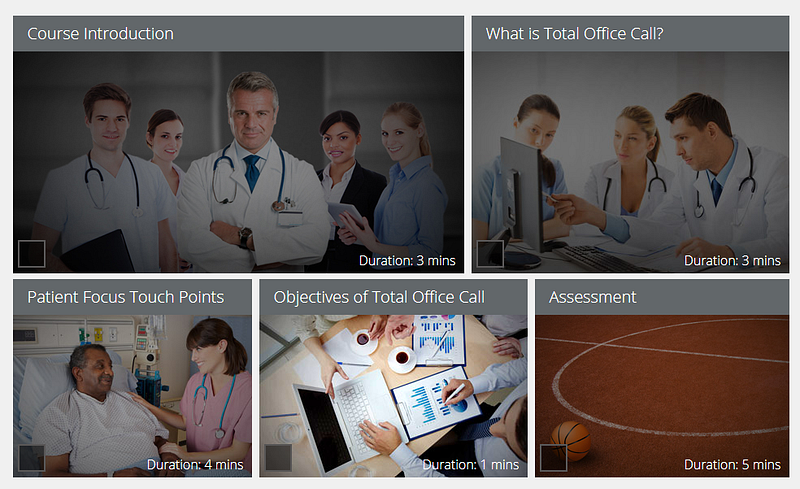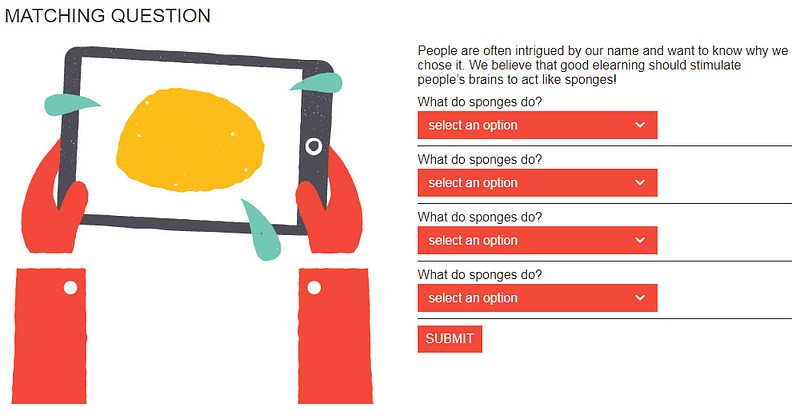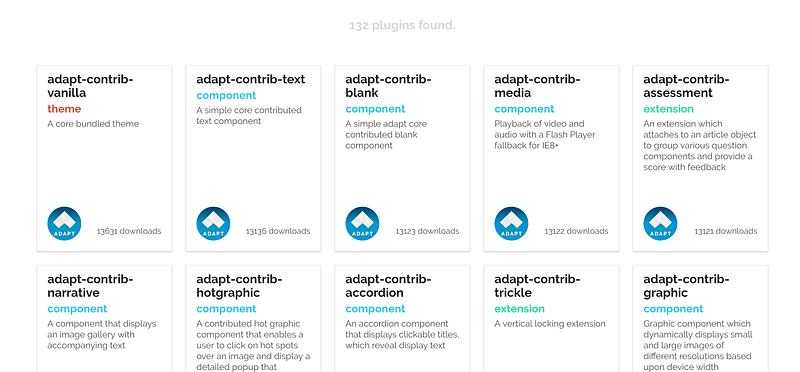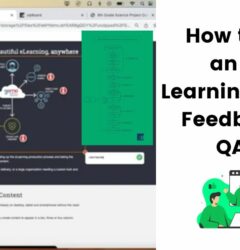Adapt Authoring Tool Review
11 Jul

Table of Contents
ToggleThe authoring tool for creating open-source responsive eLearning courses
In recent years, given the massive influx of tablets, mobiles, and handheld devices, there has been a complete transformation in the way the average user accesses and interacts with online content. To keep up with this continual evolution, the e-learning industry has been consistently revamping features of its existing tools/framework to provide comprehensive support for content creation for multi-device use.
New tools and frameworks have also been introduced in the market to cater to the burgeoning demand of creating responsive courses — one such name which is a standout in the elearning world is that of ‘Adapt Learning.’ Adapt’s dedicated focus to enabling creation of responsive content by technical and non-technical users has been garnering it significant praise among users. Its popularity which has been increasing by leaps and bounds is also greatly attributable to the fact that Adapt has been on a mission to ensure widespread use of its framework and authoring tool by making the entire source code accessible to users entirely free.

Adapt Framework and Authoring Tool: What you need to know
The ‘Adapt Learning Framework’ empowers the user to create eLearning courses in HTML5 — its fundamental design enables the creation of responsive course content and the brand name ‘Adapt’ was chosen to embody it.
The ‘Adapt Learning Framework’ was designed with developers in mind; for non-technical users, the Adapt community then created a rapid authoring tool called ‘Adapt Authoring tool’ based on the Adapt Learning Framework. It aims to allow non-tech users to create courses without the need to write any code. The authoring tool was initially rolled out only to customers of Learning Pool in October 2014. But it was reportedly received with such rave reviews that the ‘Adapt’ community decided to roll out a ‘free’ hosted version of the tool to everyone in April 2016.
Who’s behind Adapt Learning?
An open-source ‘Adapt Learning Framework’ was conceived and developed by Europe-based eLearning tech companies and released in February 2014. Brought together by a common aim to “provide low cost, innovative e-learning solutions”; UK-based Learning Pool along with Sponge UK, Kineo came together to collaborate on their ambitious vision for the future.
Adapt’s a vision statement
Adapt’s vision for the future includes the following key goals:
i) Create a leading authoring tool capable of producing responsive and multi-device e-learning;
ii) Encourage wider adoption of Adapt’s free and open source license;
ii) Ensure Adapt’s authoring tool is intuitive and easy to use especially for those with limited technical knowledge; and
iv) Support collaborative development and transition towards a ‘community-led governance structure’.
What’s making users embrace Adapt Learning?
Here are some of the key reasons that are leading a multitude of users to transition towards Adapt’s authoring tool:
- Responsive Content: Needless to emphasize that allowing users to build responsive content with ease on an authoring tool based on the award winning ‘Adapt Framework’ is a massive attraction for course creators.
- Deep scroll design: Adapt stands distinctly apart from other authoring tools which have evolved from a ‘PowerPoint’ format design. Courses created via Adapt Learning offer a webpage-like experience; it scrolls vertically, not horizontally: the navigation offers an inherent familiarity to users and is an experience more attuned to the web.

- Flexibility: Users have responded very positively to the flexibility Adapt’s authoring tool offers; it allows for a significant amount of custom design for course creators to play with and is not based on fixed templates.

Let’s take a closer look at what’s great and not-so-great about Adapt
Pros
- Intelligent Design: Course creators need to create only one version of their course in HTML5 via the Adapt Authoring Tool; course content in addition to being responsive across devices also responds ‘intelligently’ to the device it’s being accessed from — this means that an alternative form of content can be displayed — for example, a complex animation may not be displayed on smaller devices.
- Component driven: Given that’s open-source, users can keep adding to their collection of plug-ins that are shared by the community allowing them to custom design their courses and not be bound by working off fixed templates.

- Cost efficiency: Course creators need to create just one version of their e-learning content in HTML5. This in turn makes it easier to maintain and in the long run, pays off leaps and bounds by being cost and time-efficient from a maintenance perspective.
- LMS Compatibility: Courses created via the Adapt Authoring tool can be launched and tracked in any Learning Management System that is compatible with SCORM. The authoring tool is also equipped with publishing Section 508 and ARIA compliant courses.

- Languages: Along with general languages flowing from left to right, it also supports languages that flow from right to left. Thus, allowing users to create courses even in languages like Arabic.
- The track between devices: Adapt makes it possible to track between devices — one could start their online training on their desktop but may switch between multiple devices by the time they complete the course. Thus, this feature makes both tracking as well as learning easier.
Cons
- Add-on costs: Users of Adapt Authoring Tool contradicted some of the Adapt community’s claims. Some allege that despite the company’s assurances of targeting non-technical users, several aspects of the authoring tools require technical know-how — this, in turn, adds to the cost of using the authoring tool.
- No offline access: Possibly a key disadvantage to using Adapt is the inability to access it offline. If the course creators’ targeted audience is likely to frequently access/consume content offline, this feature would create issues.
- Animations: Currently only a limited variety of animations are supported on the authoring tool. If those creating content needs to create, timed illustrations, the authoring tool cannot support it at this point.
Who is Adapt currently ideal for?
Adapt’s authoring tool is ideal for someone who needs to create courses that require ‘linear navigation’, needs to be responsive across devices, is text and image-based (no animations), and needs to be created in a limited time frame.
However, for a course creator who needs to create content that can be accessed offline by his learners, Adapt Authoring Tool is not the ideal tool. Currently, Adapt doesn’t support ‘branching scenarios’ either — if this is a requirement, the course developer can only avail of this feature via a paid version of the Adapt authoring tool.
Can Adapt Learning impact the evolution of the eLearning world?
Experts believe that given Adapt Learning’s open-source framework and authoring tool and its limitless potential, it would drive a significant change in the rapid learning development industry.
There are admittedly concerns like the learning curve is initially a bit higher and additional time needs to be invested, but the results would over time outweigh the investment.
Others believe that despite some obvious design limitations and even though Adapt is not yet a mature product, it is far from a fade. It will pave the way forward towards “unencumbered design in eLearning” which will allow instructional designers to explore “boundless possibilities of web design in their courses.”
Thanks, Supriya Kaur for your contribution!
Request Demo
Request a personalized demo of zipBoard to help your instructional designers and project managers in eLearning to collaborate better with their entire team
Get DemoRecent Posts
- User-Friendly E-Learning Review Tools: Trends for Teams in 2026 February 20, 2026
- Your Digital Asset Review Workflow Is Broken (And How to Fix It) February 3, 2026
- Best Practices for Efficient Document Reviews and Collaboration December 18, 2025
- MEP Document Management: How to Streamline Reviews & Avoid Rework October 3, 2025
- What Is Online Proofing Software? And Why Content Review Breaks Without It July 11, 2025
©️ Copyright 2025 zipBoard Tech. All rights reserved.


